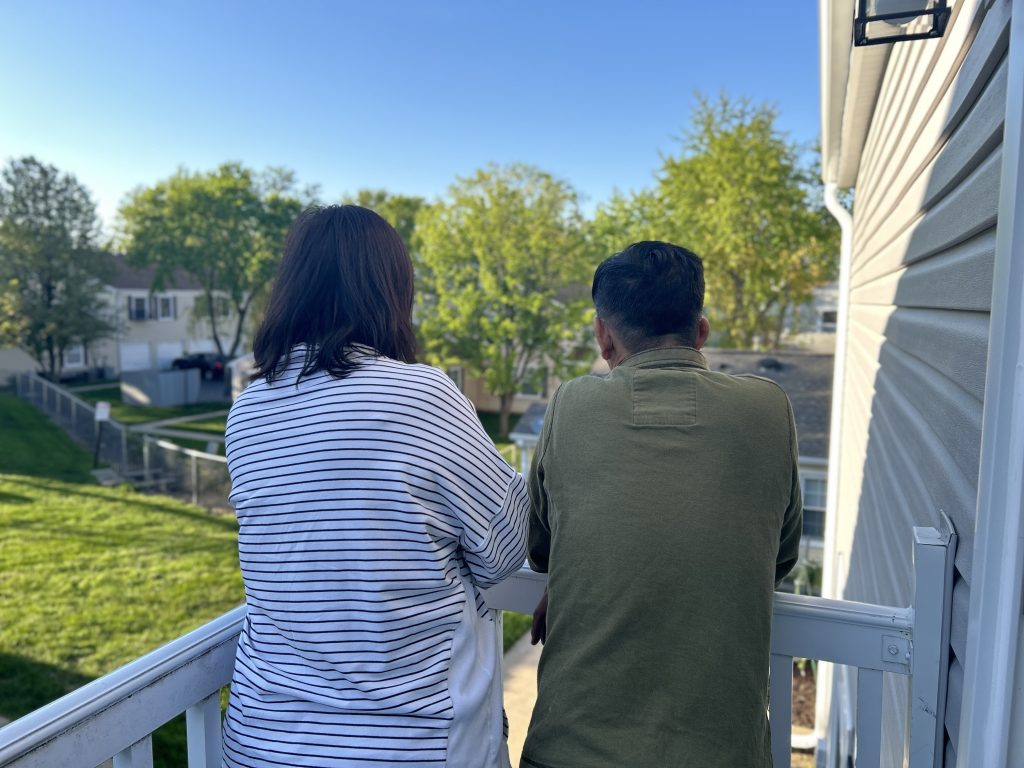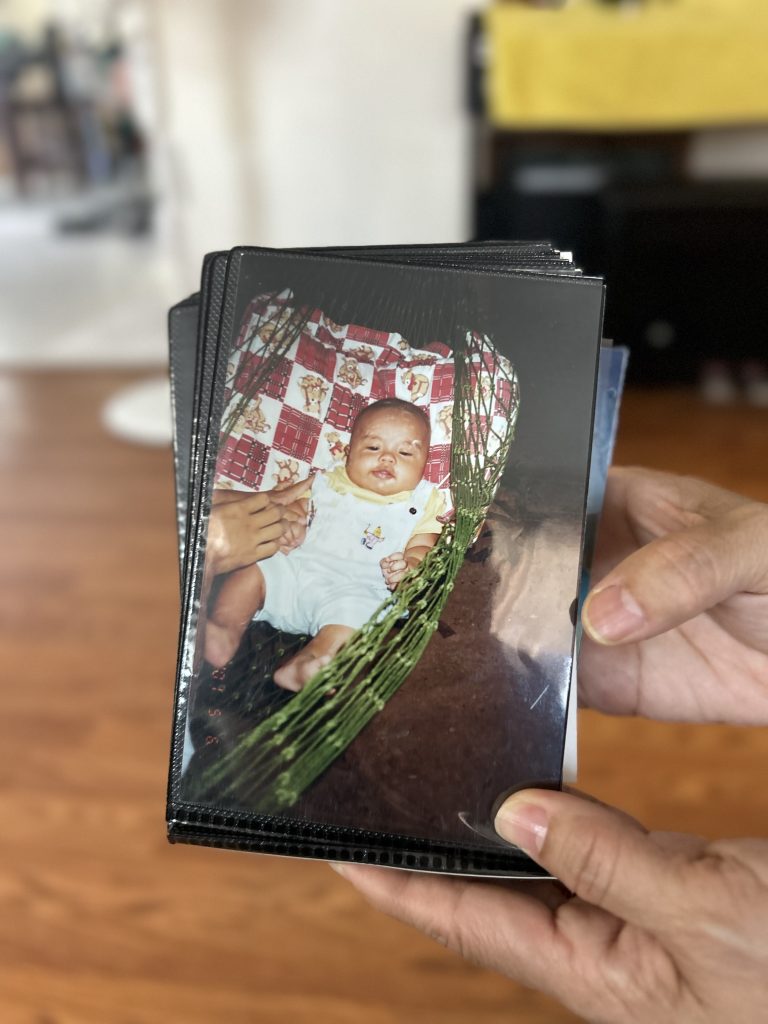Beyond the Camp: A Refugee Family’s Journey from Burma to the Chicago Suburbs
At their modest townhouse in the Chicago suburbs, Too Too and her husband Poe Wah look through pictures from over 25 years ago. These are not the kind of images that fill what many think of as a typical family album.
One picture stands out. It shows two men sweeping an outdoor concrete patio. A thatch shelter with a hammock in the background. One is a much younger Poe Wah.
“We were living in the refugee camp, and I was pregnant at that time,” explains Too Too. “I was always hungry, so my husband got this little job with one of the aid agencies so we could have a little extra money and he could get me food.”
The two fled Burma when they were teenagers in the late 1990s. Too Too came from a village in a contested zone frequently targeted by rocket attacks. Poe Wah had been imprisoned and placed on a government watch list. Both are members of different clans within the Karen people group. Poe Wah comes from a long line of Christians. Too Too grew up mostly Buddhist, was baptized once so she could get hired by some nuns in Thailand, and years later had a genuine encounter with Jesus after they’d moved to Chicagoland.
Poe Wah’s journal from those days contains pictures of world leaders like Madeleine Albright, Princess Diana, Colin Powell, and Bill Clinton. A vintage-style 1997 postcard celebrating the 49th anniversary of human rights day. Postcards with images of young people facing off with soldiers wielding rifles, reminiscent of 1960s anti-war images in the United States. The couple has come a long way since they fled Burma as young adults and were resettled by World Relief Chicagoland. Their oldest son, born in a refugee camp, just completed his bachelor’s in computer science. But the situation for many people in Burma today has gotten worse.

BURMA TODAY – THE CHALLENGE CONTINUES
“People have nowhere left to hide these days,” Too Too’s cousin recently told her over Whatsapp. “When a rocket hits a village, it leaves such a big hole that there’s nothing left.”
Too Too remembers those days herself, back in Burma. In her village everyone had go-bags ready for when they needed to move. They turned lights and fires out at dusk to avoid being targeted. When rockets hit back then, they left a hole only 5–6 feet in diameter. Not like the big ones her cousin speaks of today.
In 2024, she and her husband traveled to Thailand to visit family and friends along the Thai-Burmese border and saw the current challenges for themselves.
“When we went on this trip, we were only one percent happy and 99 percent not happy,” Too Too says. “What we saw – so many Burmese people in Thailand now – made us remember our own experience. Every day people were asking for help. Because they heard we are from America so they asked for money, money, money. It hurt our hearts to see them living in such a hard situation. It made us want to do something…”
They visited relatives who have been living in Mae La refugee camp since 2006. They spoke of an auntie whose home had been destroyed by the March 28 earthquake and was living on the streets at 70 years old.
The situation in Burma is indeed one of the great crises facing the world today. Since 2021, more than 6,600 civilians have been killed by security forces and over 22,000 political prisoners remain detained. The deadly earthquake in March compounded the suffering, displacing even more families. Airstrikes just like those Too Too faced 25 years ago have intensified. A recent UN report states that 3.5 million people are currently displaced.

THE CHURCH ON THE MOVE
In the midst of these hardships, Too Too and Poe Wah saw the local church at work. They had previously been connected with a local pastor (we’ll call her Kay) in the border region. Kay was running a ministry to care for displaced kids and young people fleeing the regime and forced conscription in Burma, but also not given legal status or protection by Thailand.
“We didn’t plan this,” Too Too says, “but we ended up buying a house to help her with her ministry.” Currently, Kay’s ministry is providing a safe place for about 300 kids and young people in the region.
Too Too was so inspired by Pastor Kay that she is now sending significant amounts of her paycheck from her manufacturing job in the suburbs to support the work at the Thai border.
“If my husband retires at 62,” she says, “we may try to travel back and forth and live there part-time to help Pastor Kay.”
In the meantime, Too Too and Poe Wah continue attending the local Karen church every week that they’ve gone to for years. Too Too wakes up early to read her Bible every morning and often shares what she hears from God to her friends and family on Facebook. “I never went to school,” she says, “but I read the Bible and God speaks to me.”


